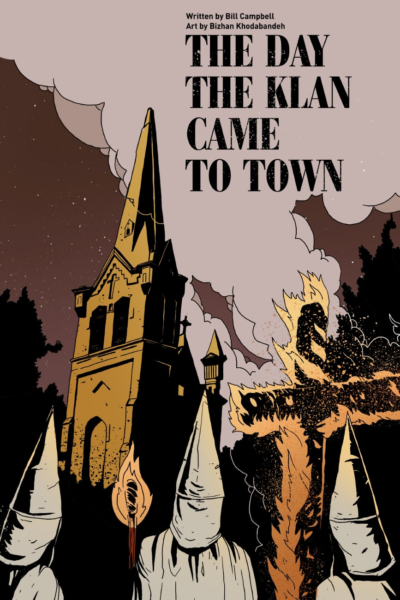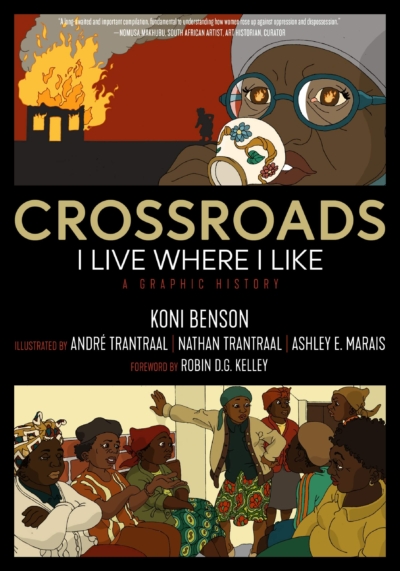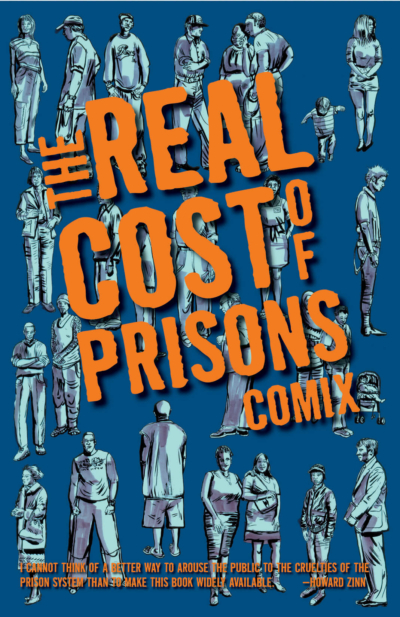The year is 1923. The Ku Klux Klan is at the height of its power in the US as membership swells into the millions and they expand beyond their original southern borders. As they continue their campaigns of terror against African Americans, their targets now also include Catholics and Jews, southern and eastern Europeans, all in the name of “white supremacy.” Incorporating messages of moral decency, family values, and temperance, the Klan has slapped on a thin veneer of respectability and become a “civic organization,” attracting new members, law enforcement, and politicians to their particular brand of white, Anglo-Saxon, and Protestant “Americanism.”
Pennsylvania enthusiastically joined that wave. That was when the Grand Dragon of Pennsylvania decided to display the Klan’s newfound power in a show of force. He chose a small town outside of Pittsburgh named after Andrew Carnegie, a small, unassuming borough full of Catholics and Jews, the perfect place to teach immigrants a “lesson.” Some thirty thousand members of the Klan gathered from as far as Kentucky for “Karnegie Day.” After initiating new members, they armed themselves with torches and guns to descend upon the town to show them exactly what Americanism was all about.
The Day the Klan Came to Town is a fictionalized retelling of the riot, focusing on a Sicilian immigrant, Primo Salerno. He is not a leader; he’s a man with a troubled past. He was pulled from the sulfur mines of Sicily as a teen to fight in the First World War. Afterward, he became the focus of a local fascist and was forced to emigrate to the United States. He doesn’t want to fight but feels that he may have no choice. The entire town needs him—and indeed everybody—to make a stand.
Details:
Author: Bill Campbell • Illustrator: Bizhan Khodabandeh • Foreword: P. Djeli Clark
Series: PM Press
ISBN: 9781629638720
Published: October 2021
Format: Paperback
Size: 6×9
Pages: 128
Subjects: Comics & Graphic Novels/Historical Fiction
Praise
- “A piece of American history in all its ugliness told as an astonishing coming together of misfits to stand up against a common threat. Bill brings an international scope to the history and a concise understanding of politics to the story. Bizhan’s art is dazzling. This is a book for our times.”
—Thi Bui, author of The Best We Could Do - “So often, in times of unrest, we raise our heads up from the crowds of protesters and clouds of tear gas and wonder, ‘How did we get here?’ Fortunately, Bill Campbell and Bizhan Khodabandeh are here to remind you of the history that so informs our present. With incisive dialog and inviting cartooning, the creative team brings you into a past where the construction of whiteness was contested, cross-cultural alliances kept the United States growing, and the people on the ground reminded those in power that fascism was an unwelcome plague that every real American will stand and fight. Despite being about the past, you will not find a timelier graphic novel.”
—Damian Duffy, author of Octavia Butler’s Kindred: A Graphic Novel Adaptation - “A fearless, brutal account of American history filtered through one town’s relationship to immigration, identity, and ‘othering.’ The Day the Klan Came to Town lays history bare, making centuries-long connections to today. Vital.”
—Nate Powell, illustrator of March - “Bill Campbell continues to do society a service by sharing the important stories that help us to be better. Understanding American history will put us on a path to being better than our past selves. The Day the Klan Came to Town is an example of an uncelebrated story that show us where we have been and helps us grow into the society we need to be.”
—Joel Christian Gill, illustrator of Strange Fruit - “Sound familiar?: An invading hate group, a corrupt police force, and ineffectual government force a diverse cross-section of town residents to fight back. Through the use of comics, intensive research, and their vivid imaginations, Campbell and Khodabandeh bring to life the infamous ‘Karnegie Day’ riot of August 25, 1923. Carnegie’s largely Catholic townspeople resist internal resentments and infighting to band together against the Klan. Throughout the narrative we get a sense of the town’s history and the immigrants who settled there—ironically many of them fleeing persecution in their home countries. This nearly-century-old story is echoed in today’s movements for social change.
—Josh Neufeld, author of A.D.: New Orleans After the Deluge
About the Contributors
- Bill Campbell is the author of Sunshine Patriots; My Booty Novel; Pop Culture: Politics, Puns, “Poohbutt” from a Liberal Stay-at-Home Dad; Koontown Killing Kaper; and Baaaad Muthaz. Along with Edward Austin Hall, he coedited the groundbreaking anthology, Mothership: Tales from Afrofuturism and Beyond. He has also coedited Stories for Chip: A Tribute to Samuel R. Delany; APB: Artists against Police Brutality (for which he won a Glyph Pioneer/Lifetime Achievement Award); and Future Fiction: New Dimensions of International Fantasy and Science Fiction. His latest anthology is a two-volume collection with over one hundred science fiction, fantasy, and horror stories from around the world, Sunspot Jungle: The Ever Expanding Universe of Fantasy and Science Fiction. Campbell lives in Washington, DC, where he spends his time with his family and helms Rosarium Publishing.
- Bizhan Khodabandeh is a visual communicator who moves freely across the professional boundaries as designer, illustrator, artist, and activist. His works vary from small graphic art projects to major public campaigns. Khodabandeh is particularly fascinated by how art and design can catalyze social change. He has received numerous international and national awards for his work, including: a silver medal from the Society of Illustrators, a silver medal from the International Design Awards, a finalist in the Cross-Cultural Design Competition, and best in show through the American Institute of Graphic Arts. He has received numerous international and national awards for his work as both an illustration and designer through various institutions such as: The American Institute of Graphic Arts, Creativity International, Adbusters, and Creative Quarterly. Khodabandeh has had work featured in publications such as Print, Creativity International, Adbusters, and Comic Bastards among others. Currently Khodabandeh teaches full-time at VCU’s Robertson School of Media & Culture and freelances under the name, Mended Arrow.
- Phenderson Djéli Clark is the award winning and Hugo, Nebula, Sturgeon, and World Fantasy nominated author of the novellas Ring Shout, The Black God’s Drums, and The Haunting of Tram Car 015. His stories have appeared in online venues such as Tor.com, Daily Science Fiction, Heroic Fantasy Quarterly, Apex, Lightspeed, Fireside Fiction, Beneath Ceaseless Skies, and in print anthologies including, Griots, Hidden Youth, and Clockwork Cairo. He is a founding member of FIYAH literary magazine and an infrequent reviewer at Strange Horizons.





